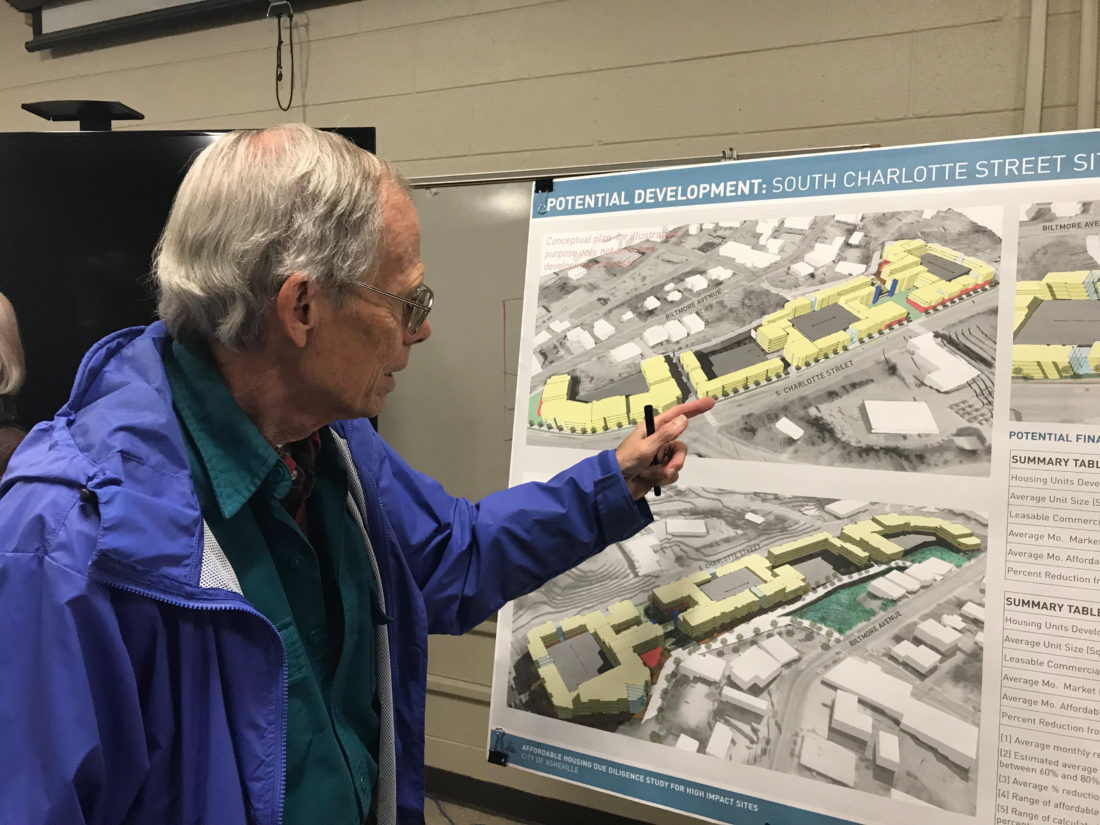With apologies to Jane Austen, it is a truth universally acknowledged that a resident of Western North Carolina in possession of little fortune must be in want of affordable housing. In 2018, governments and organizations throughout the area tried to tackle the problem with a range of creative solutions.
- Rental plans for city-owned land: Asheville officials considered putting up the city’s own land as an inducement for developers to create affordable rental units. At City Council’s Dec. 11 meeting, Council directed staff to continue plans for properties on Biltmore Avenue and South Charlotte Street, with next steps in come in January.
- Affordable condo experiment: After the city’s chosen developer for its former Parks Maintenance Facility at 360 Hilliard Ave. said rental units were no longer economically feasible due to increasing construction costs, City Council agreed on Nov. 13 to change the project to a for-sale condominium model. This is the first such project for Asheville, and it remains unclear how the units’ affordability will be maintained over a 50-year timespan.
- Habitat for Humanity multifamily housing: In Candler, the Asheville Area Habitat for Humanity’s Curry Court development marked the nonprofit’s first departure from a single-family home approach. Rising expenses for land and construction materials drove the move, even though Habitat relies on volunteers and future homeowners for its labor.
- BeLoved tiny home village: On June 2, the nonprofit intentional community BeLoved Asheville took its first step toward a development of roughly a dozen tiny homes on an acre of land in East Asheville. Unlike many projects geared toward those with moderate incomes, the village would focus on serving the homeless and those in poverty.
- Small-scale multifamily development promotion: A city-sponsored workshop with faculty from the Incremental Development Alliance sought to revitalize interest in housing alternatives that fill the gap between single-family homes and apartment complexes. In an Oct. 5 commentary for Xpress, local consultant Ben Brown argued that such options would help meet demand for walkable, in-town housing.
- County expansion of manufactured home zoning: Commissioner Joe Belcher shared Buncombe County’s proposal to allow manufactured homes in residential zones that currently don’t allow them at a Dec. 7 meeting of the Council of Independent Business Owners. He said that low-income community members should be allowed to build the home they can afford, regardless of type.
- Homebuyers widening their search: With affordability so hard to come by in Asheville, many are seeking options in rural Buncombe County or even beyond county lines. In May, Xpress examined that trend and the future outlook for real estate in outlying areas.




Before you comment
The comments section is here to provide a platform for civil dialogue on the issues we face together as a local community. Xpress is committed to offering this platform for all voices, but when the tone of the discussion gets nasty or strays off topic, we believe many people choose not to participate. Xpress editors are determined to moderate comments to ensure a constructive interchange is maintained. All comments judged not to be in keeping with the spirit of civil discourse will be removed and repeat violators will be banned. See here for our terms of service. Thank you for being part of this effort to promote respectful discussion.